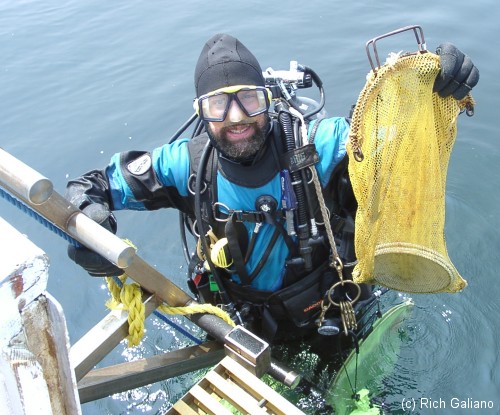Sonar
There are on the market today portable underwater direction-finding units that home in on each other by sound. These provide similar functionality to a strobe light, but with ( theoretically ) longer range, and are ( theoretically ) unaffected by water conditions and visibility. They are also very expensive, and prone to failure when a large object or wall gets between the two units. A number of times I have seen people get lost because they counted on one of these gadgets, and it didn't work.
Perhaps the most disturbing thing about these devices is that their users seem to be mostly beginners who place unfounded faith in them, probably because they paid so much for it at the dive shop. They seem to hit the water in "brain-off" mode, counting on their expensive gadgets to get them home, and making little or no effort at other forms of navigation. Unfortunately, these people are probably the least able to cope with the emergency situation that arises when they find out just how reliable their little sonar toy isn't. Learn to use a wreck reel instead.

